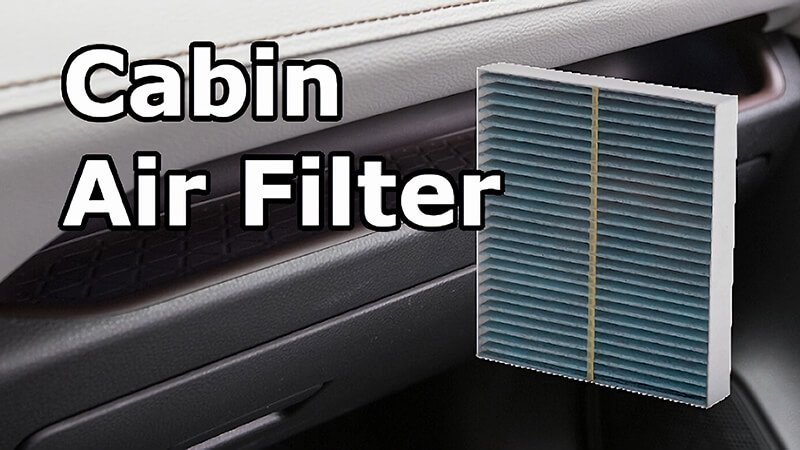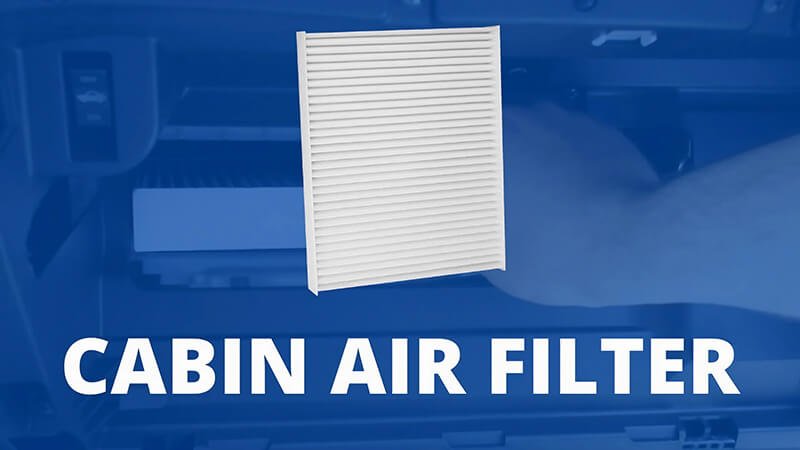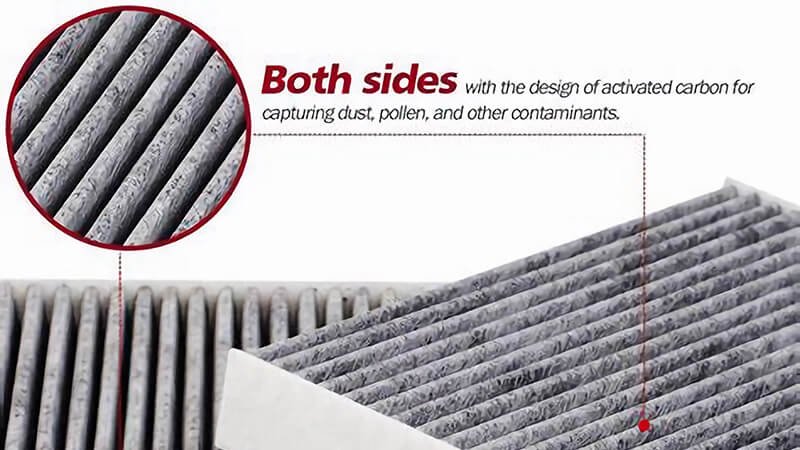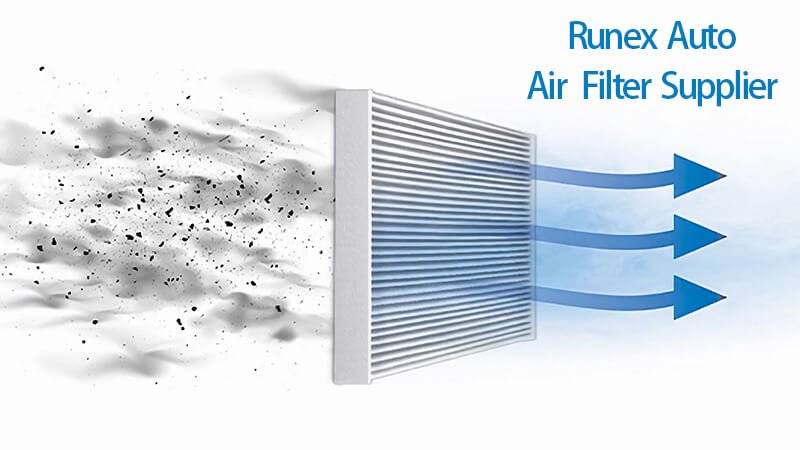Driving without an air filter may seem like a small shortcut, but the engine pays the price. Your fuel burns less efficiently, debris gets in, and sooner or later, your performance tanks. Is it worth the risk?
Driving without an air filter exposes your engine to dirt and debris, which degrades fuel efficiency, damages internal components, and drastically shortens engine life.
The risks aren't just mechanical—they're financial. A damaged engine leads to higher ownership costs, poor resale value, and disappointed clients. Let’s break this down and look at how long you can go, what really happens, and why an air filter isn't optional.

How long can you go without an air filter?
It might seem like your car runs fine without an air filter for a few miles. The problem is, engine damage doesn’t knock immediately—it builds quietly, then hits big.
You can drive a few miles without an air filter, but every moment increases the risk of debris entering the engine. It may take weeks before damage is visible, but it's happening silently under the hood.
Why even short-term use is risky
The idea that a few miles won’t hurt often leads fleet managers and procurement teams to underestimate the risk. But let’s break it down:
What happens inside the engine?
| Component | Effect Without Air Filter | Cost Implication |
|---|---|---|
| Pistons & Rings | Prone to abrasion from dirt | Reduced compression |
| Fuel Injectors | Blockage from particles | Irregular combustion |
| Sensors (MAF etc) | Contaminated, misreport airflow | Poor engine tuning |
| Oil System | More contaminants enter | More frequent oil changes |
Real example from a UK client
One of our clients in the UK experienced poor mileage and sluggish response across a commercial fleet. Their local supplier had skipped air filters1 entirely to save upfront cost. After diagnosing and switching to Runex Auto air filters, fuel economy2 stabilized and performance recovered within weeks. Small parts, big difference.

What happens if I don't put an air filter in?
A missing air filter isn’t just a minor oversight — it’s a direct invitation for engine failure. The damage is slow, silent, and expensive.
Without an air filter, your engine takes in unfiltered air full of contaminants, leading to poor combustion, clogged injectors, and accelerated wear on critical parts.
Think long-term, not short-term
Procurement decisions often favor immediate cost savings. But consider this:
Common consequences of missing air filters
- Dirt accumulation3: Sand, dust, and pollen grind metal over time.
- Bad fuel mixture: Sensors misread air levels, wasting fuel.
- Engine misfires: Irregular combustion causes jerks and stalls.
- Warranty voidance: OEMs reject claims due to negligence.
How Runex Auto filters solve this
Our filters use multi-layer synthetic media that trap particles down to microns, ensuring clean airflow under tough conditions. They're built for performance and durability, especially for fleets under high usage.
| Feature | Runex Auto Air Filter | Low-Cost Generic |
|---|---|---|
| Filtration Efficiency4 | ≥99.5% on particles >5μm | ~90–95% |
| Airflow Rate | Optimized for engine tuning | Often restrictive |
| Material Quality | OEM-grade synthetic fiber | Inconsistent paper blends |
| Lifespan | 15,000 – 20,000 km | 5,000 – 10,000 km |

What happens if the engine air filter is missing?
Missing filters don’t just let in dirt — they mess with your combustion process and drive up your maintenance costs. Engines aren’t designed to run raw.
When an air filter is missing, the engine runs with dirty, unmetered air. This harms sensors, causes imbalanced air-fuel mixtures, and leads to internal abrasion, reducing both performance and engine lifespan.
Technical breakdown: what goes wrong
1. Sensor failure
Engines rely on airflow sensors5 to determine fuel ratios. Unfiltered air clogs these sensors fast, leading to poor diagnostics, misfires, and check engine lights.
2. Dirty combustion chamber
Dirt acts like sandpaper. Pistons and cylinder walls wear faster, leading to lower compression and oil leaks.
3. More fuel, less power
The ECU compensates for misread air by dumping more fuel. That means you pay more at the pump—and get less from the pedal.
B2B perspective: long-term costs
Cutting out air filters may save a few dollars per unit. But engine rebuilds6, downtime, fuel waste, and warranty rejections quickly multiply. It’s a classic “cheap now, pay double later” scenario.
At Runex Auto, we design filters specifically to protect high-performance engines under commercial stress. Our filters help avoid the slow bleed of performance loss and escalating service costs.

Is it okay to run car AC without filter?
This question usually refers to the cabin air filter, which affects air quality inside the vehicle—not engine health—but it still matters for comfort and safety.
Running car AC without a cabin air filter can cause musty odors, allergen buildup, and reduced HVAC performance. While the car may “run,” comfort and air quality suffer.
Let’s clear the air—literally
What the cabin filter does:
| Function | Result Without Filter |
|---|---|
| Blocks allergens & dust | Dirty, irritating airflow |
| Filters out odors | Mold and mildew buildup |
| Protects AC system | Debris clogs evaporator fins |
| Improves air circulation | Reduced AC efficiency |
How Runex cabin filters help
Runex Auto cabin filters7 use activated carbon layers8 to trap odors and allergens. They’re engineered to maintain high airflow while filtering urban pollutants — perfect for fleet vehicles in cities.
Using high-grade cabin filters keeps your drivers healthier and more focused, especially for long hours behind the wheel. That’s not just comfort — that’s performance.

Conclusion
Driving without an air filter9 — whether engine or cabin — compromises performance, increases maintenance costs, and risks system failure. For commercial buyers and fleet managers, these small parts play a big role in keeping vehicles efficient and drivers safe. Runex Auto filters are engineered to protect, perform, and last. When you cut corners on filters, you’re not saving—you’re spending later.
-
Explore this link to understand how air filters enhance engine performance and fuel efficiency, crucial for fleet management. ↩
-
Discover effective strategies to boost fuel economy, which can lead to significant cost savings for your fleet. ↩
-
Understanding the impact of dirt accumulation can help you maintain your vehicle's performance and longevity. ↩
-
Exploring filtration efficiency will provide insights into how air filters can enhance engine performance and fuel economy. ↩
-
Understanding airflow sensors is crucial for maintaining engine efficiency and preventing costly repairs. ↩
-
Exploring engine rebuilds can provide insights into long-term vehicle maintenance and cost-saving strategies. ↩
-
Explore this link to understand how cabin filters enhance air quality and vehicle performance, ensuring a healthier driving experience. ↩
-
Discover the science behind activated carbon layers and their effectiveness in trapping odors and allergens for cleaner air. ↩
-
Find the best auto air filter from Runex. ↩













